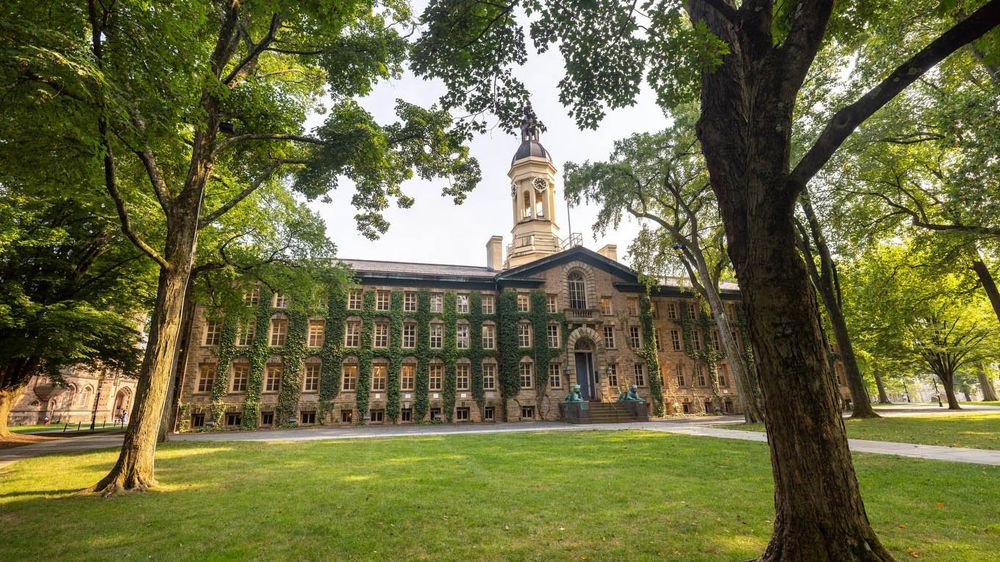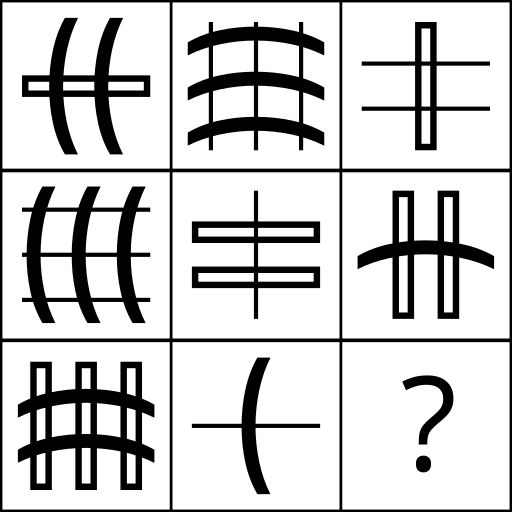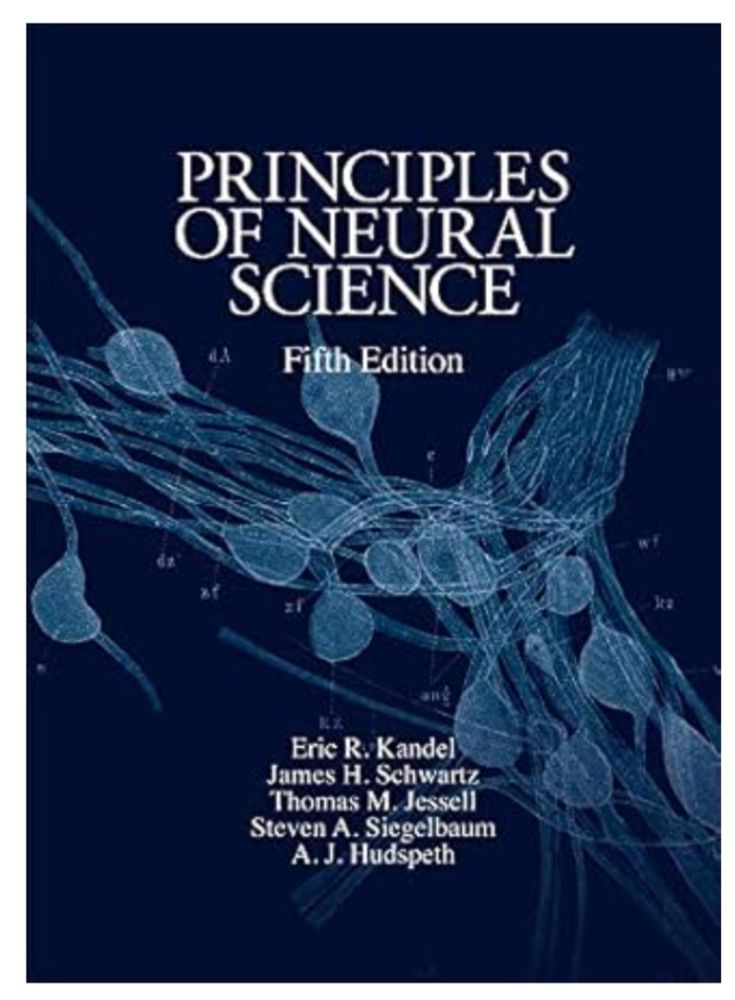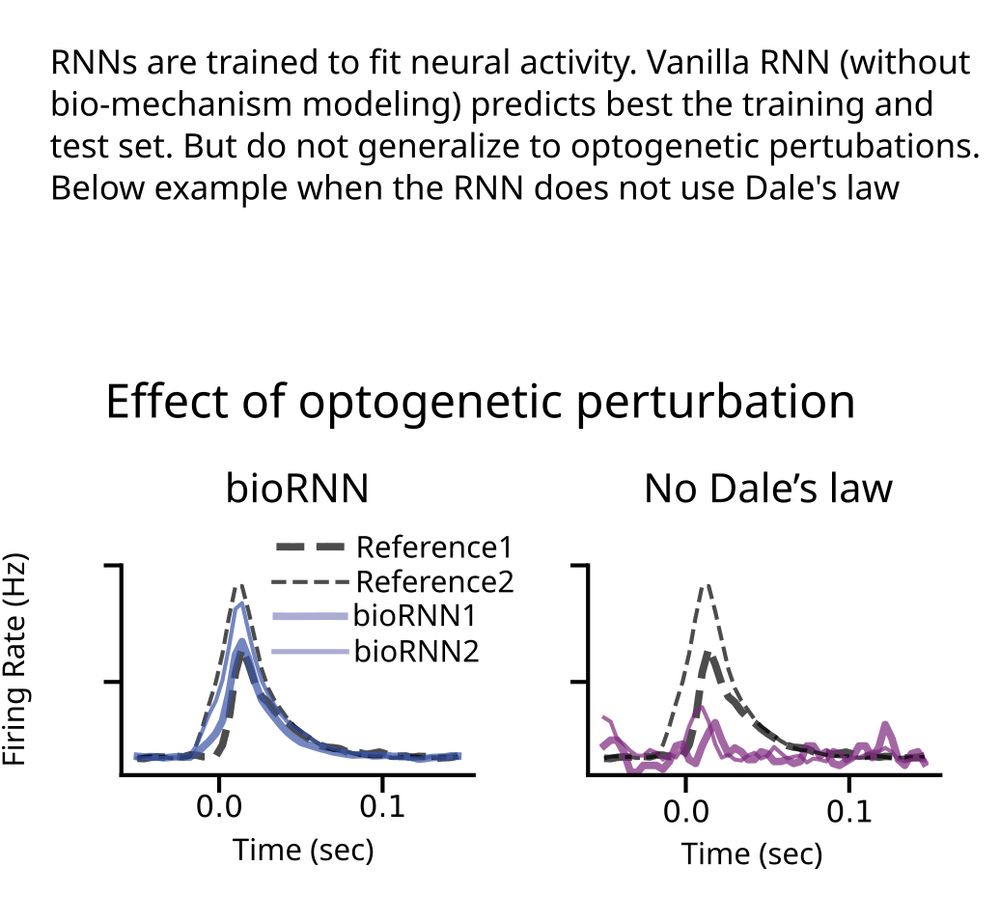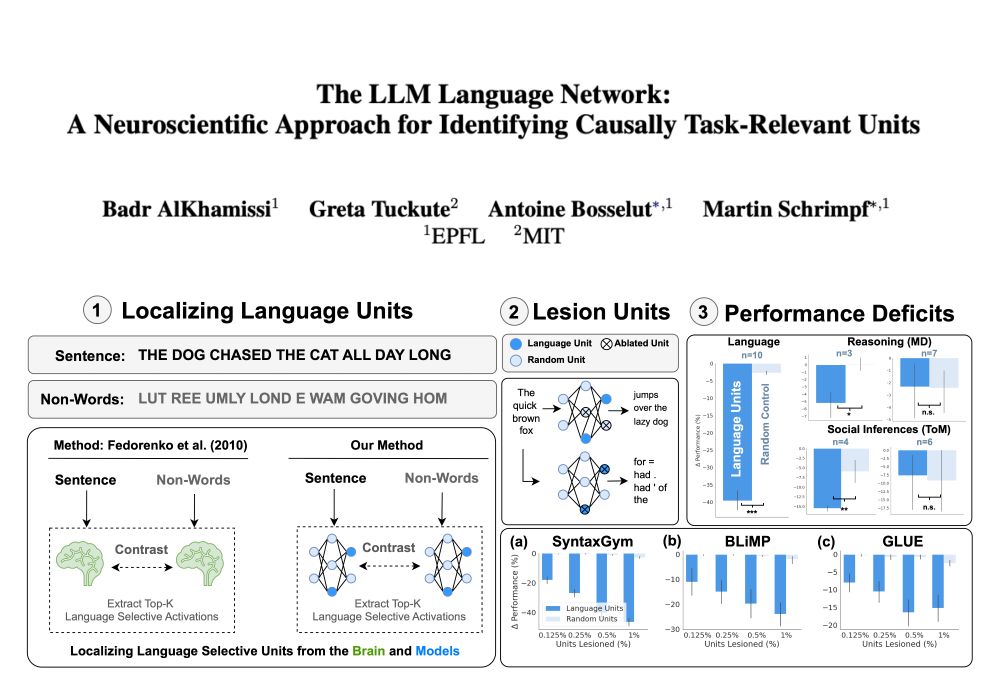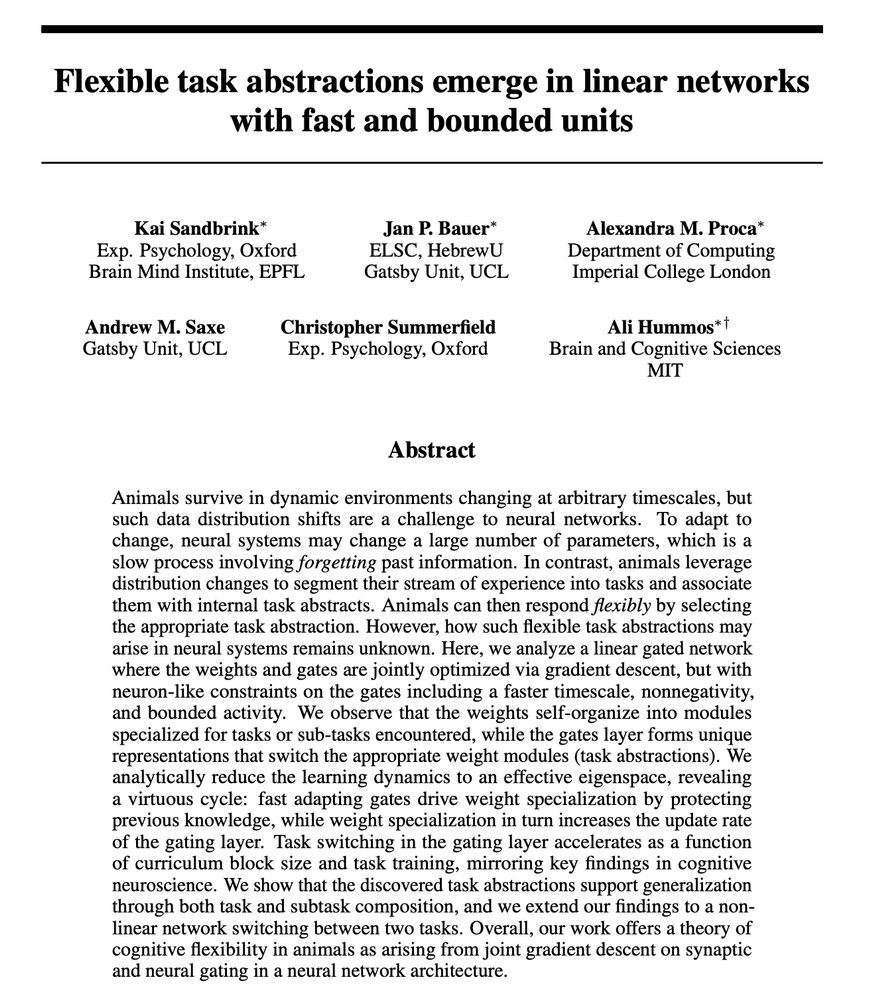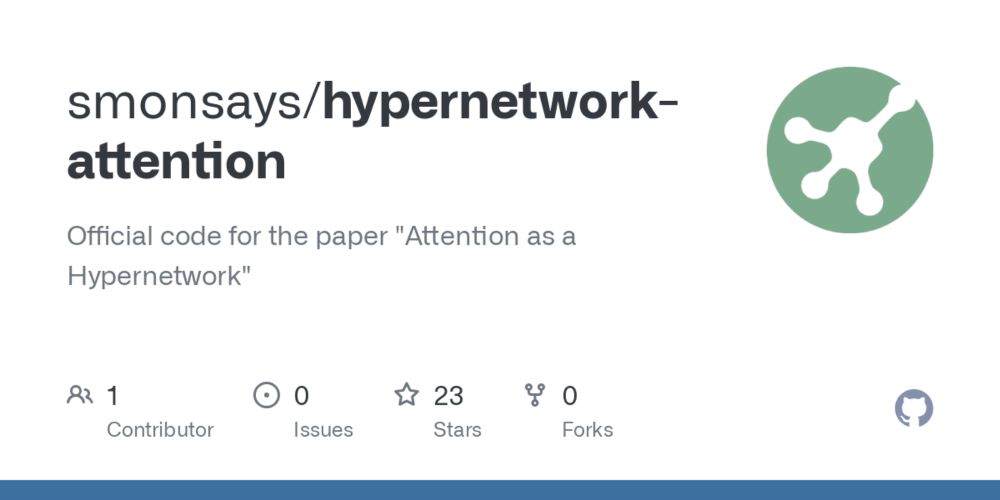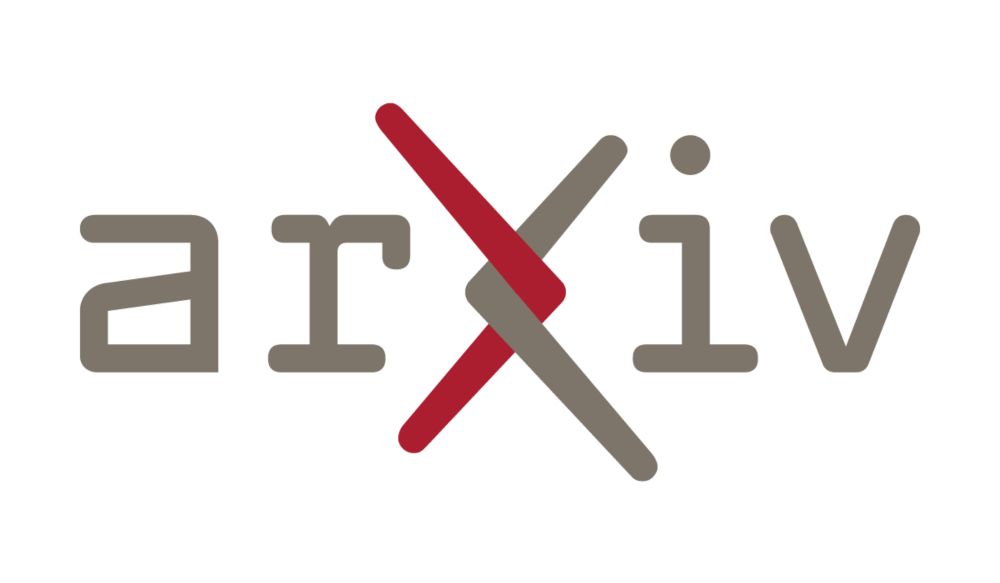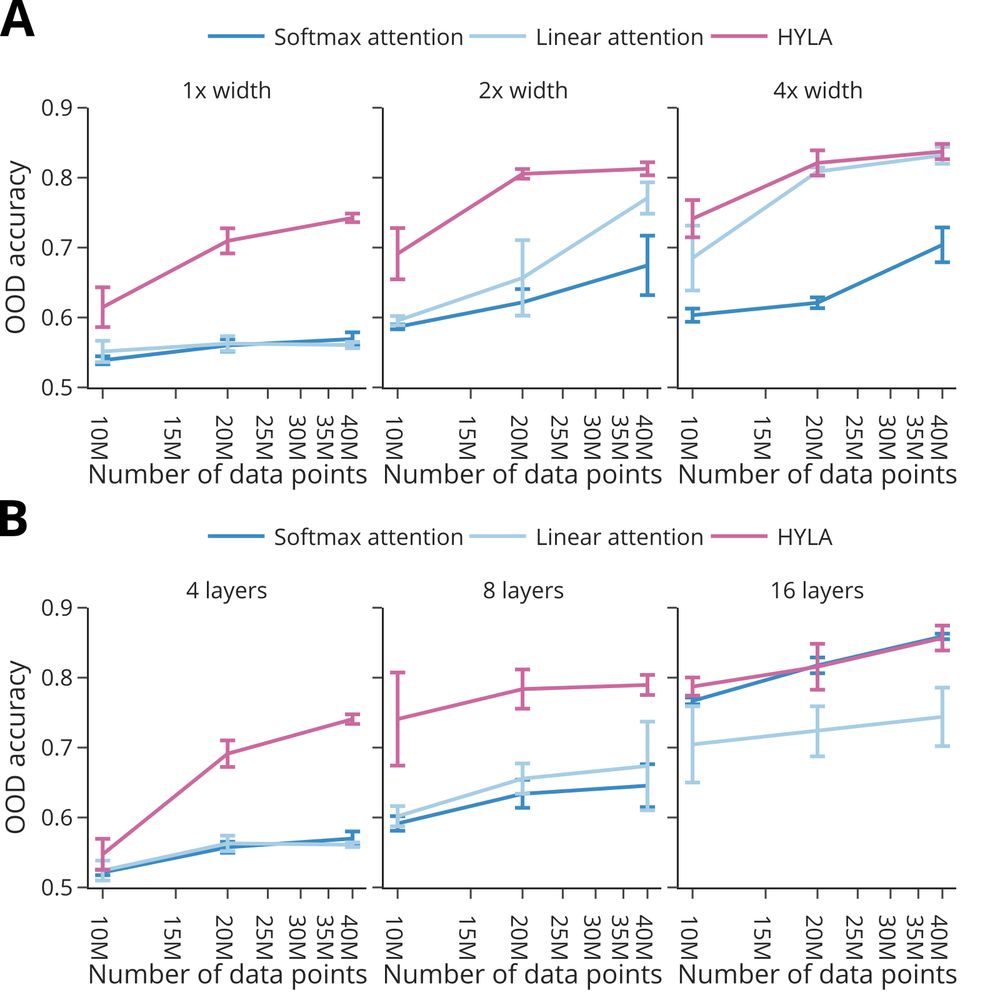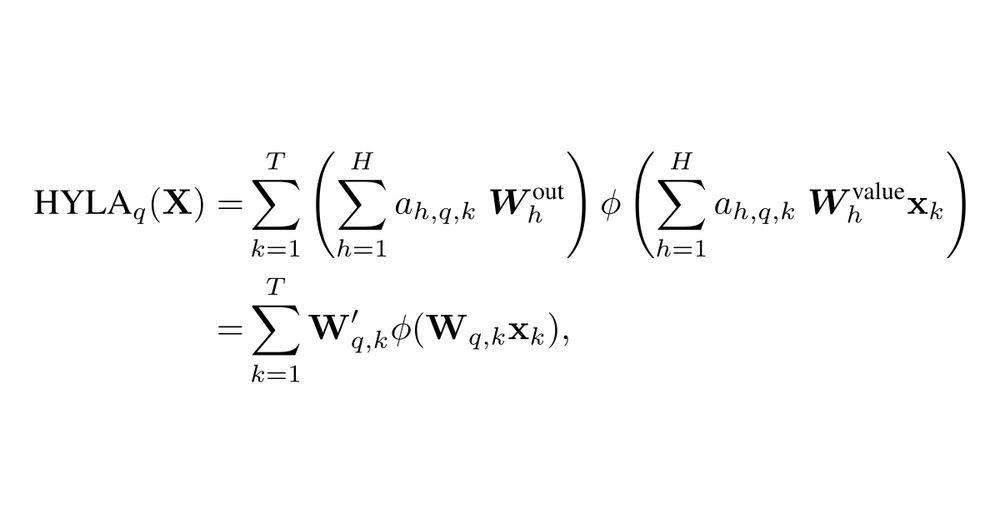Simon Schug
@smonsays.bsky.social
910 followers
220 following
15 posts
compositional generalization in neural networks, et al. @Princeton
https://smn.one
Posts
Media
Videos
Starter Packs
Pinned
Reposted by Simon Schug
Reposted by Simon Schug
Taylor Webb
@taylorwwebb.bsky.social
· Mar 10
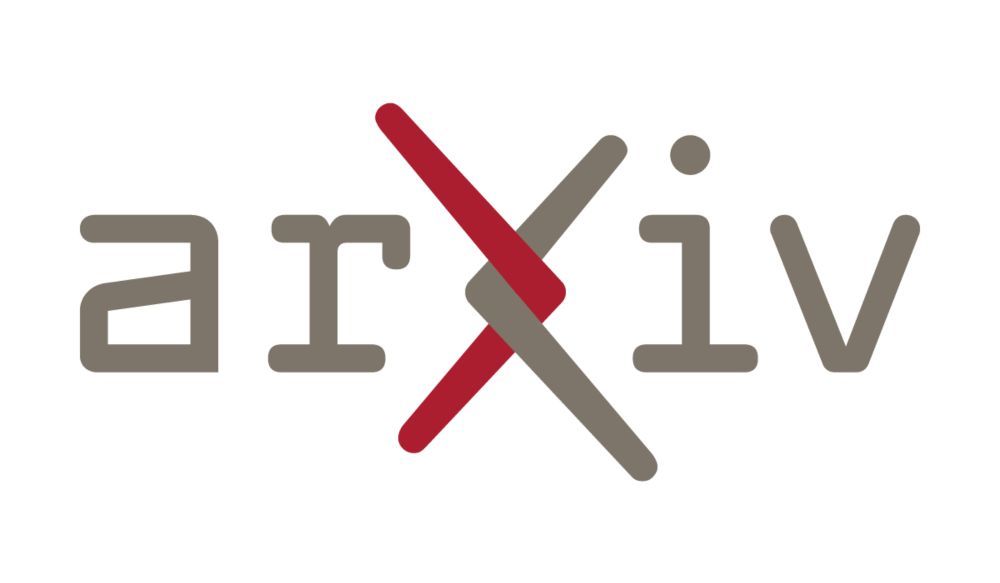
Emergent Symbolic Mechanisms Support Abstract Reasoning in Large Language Models
Many recent studies have found evidence for emergent reasoning capabilities in large language models, but debate persists concerning the robustness of these capabilities, and the extent to which they ...
arxiv.org
Reposted by Simon Schug
Marine Schimel
@marineschimel.bsky.social
· Jan 31

Dynamic consensus-building between neocortical areas via long-range connections
The neocortex is organized into functionally specialized areas. While the functions and underlying neural circuitry of individual neocortical areas are well studied, it is unclear how these regions op...
www.biorxiv.org
Reposted by Simon Schug
Reposted by Simon Schug
Reposted by Simon Schug
Reposted by Simon Schug
Reposted by Simon Schug
Blake Richards
@tyrellturing.bsky.social
· Dec 16
Reposted by Simon Schug
Reposted by Simon Schug
Markus Meister
@mameister4.bsky.social
· Nov 14
Reposted by Simon Schug
Andrew Lampinen
@lampinen.bsky.social
· Dec 10

The broader spectrum of in-context learning
The ability of language models to learn a task from a few examples in context has generated substantial interest. Here, we provide a perspective that situates this type of supervised few-shot learning...
arxiv.org
Reposted by Simon Schug
Simon Schug
@smonsays.bsky.social
· Nov 20
Reposted by Simon Schug
Blake Richards
@tyrellturing.bsky.social
· Nov 13
Reposted by Simon Schug
Simon Schug
@smonsays.bsky.social
· Nov 16
Simon Schug
@smonsays.bsky.social
· Nov 13
Simon Schug
@smonsays.bsky.social
· Nov 13

